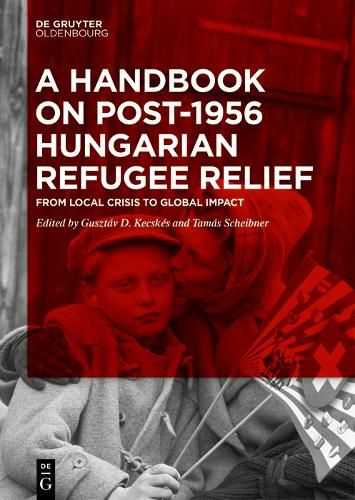Readings Newsletter
Become a Readings Member to make your shopping experience even easier.
Sign in or sign up for free!
You’re not far away from qualifying for FREE standard shipping within Australia
You’ve qualified for FREE standard shipping within Australia
The cart is loading…






This volume focuses on the 1956 Hungarian refugee crisis, when 200,000 Hungarians fled to Western Europe and beyond after the Soviet invasion. Although the number of refugees was not outstanding by global standards, the book shows that the event had a thorough impact on international refugee rescue policies worldwide and influenced the development of the Cold War. It provides, first, an up-to-date synthesis of research on Hungarian refugees, the responses to the challenges set by the migration crisis in the host countries, and the activities of international organizations in refugee aid; second, it offers new insights based on previously unknown archival sources; and third, it opens new pathways for exploring historical trends in the study of migration during the Cold War. By providing an overall picture of this central event in Hungarian history, the book furthers our understanding of the historical roots of the currently existing international system of institutions and contemporary migration policies. The volume makes one of the most impactful refugee crises of the twentieth century comparable to other twentieth-century and contemporary migration processes and contributes to current research on historical population movements.
$9.00 standard shipping within Australia
FREE standard shipping within Australia for orders over $100.00
Express & International shipping calculated at checkout
This volume focuses on the 1956 Hungarian refugee crisis, when 200,000 Hungarians fled to Western Europe and beyond after the Soviet invasion. Although the number of refugees was not outstanding by global standards, the book shows that the event had a thorough impact on international refugee rescue policies worldwide and influenced the development of the Cold War. It provides, first, an up-to-date synthesis of research on Hungarian refugees, the responses to the challenges set by the migration crisis in the host countries, and the activities of international organizations in refugee aid; second, it offers new insights based on previously unknown archival sources; and third, it opens new pathways for exploring historical trends in the study of migration during the Cold War. By providing an overall picture of this central event in Hungarian history, the book furthers our understanding of the historical roots of the currently existing international system of institutions and contemporary migration policies. The volume makes one of the most impactful refugee crises of the twentieth century comparable to other twentieth-century and contemporary migration processes and contributes to current research on historical population movements.